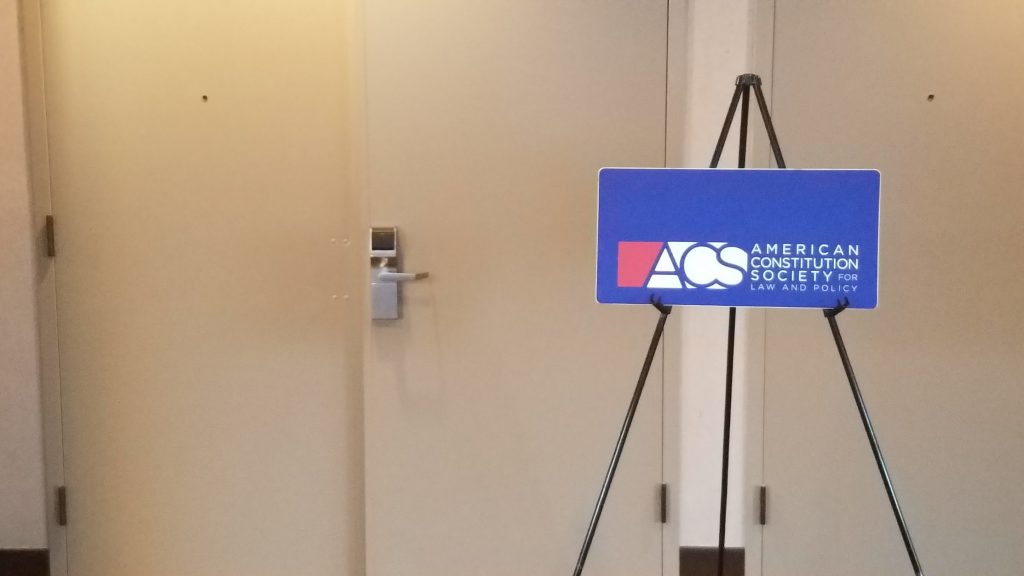On January 5, 2017, I presented my new paper, Presidential Maladminsitration, at the Federalist Society Faculty Conference. This works-in-progress format was limited to seven minutes, and I managed to squeeze it with only 6 minutes and 49 seconds. Here is a recording:
For those interested, here is the abstract. I welcome any comments on this draft paper:
In Presidential Administration, then-Professor Elena Kagan re-envisioned administrative law through the lens of the President’s personal influence on the regulatory state. Rather than grounding Chevron deference on an agency’s “special expertise and experience,” Kagan would “take unapologetic account of the extent of presidential involvement in administrative decisions in determining the level of deference to which they are entitled.” The stronger the President’s fingerprints on the executive action, a practice she praises as “presidential administration,” the more courts should defer.
There is a flipside to Kagan’s theory: four species of high-level influence, which I describe as “presidential maladministration,” are increasingly problematic. First, where an incoming administration reverses a previous administration’s interpretation of statute, simply because a new sheriff is in town, courts should verify if the statute bears such a fluid construction. Second, where an administration discovers a heretofore unknown power in a statute that allows it to confer substantive rights, courts should raise a red flag, especially when the authority exercised was one Congress withheld. Third, where an administration declines to enforce a statute that Congress refuses to repeal, under the guise of prosecutorial discretion, courts should view the action with skepticism. Fourth, where evidence exists that the White House attempted to exert its influence, and intrude into the rulemaking process of independent agencies, courts should revisit the doctrine concerning altered regulatory positions.
As the Federal Register turns the page from Obama to Trump, this article provides a timely analysis of how courts react to unpresidented approaches to maladministration.
I’d also like to provide an AALS-related update. On January 2, I blogged that the American Constitution Society’s “Public Law Workshop” was invitation only. After I blogged about this, I received numerous tweets and emails from ACS-affiliated faculty, criticizing my post. They explained that the format of the event was to allow junior scholars to receive one-on-one, or even two-on-one feedback from senior scholars. (I noted that in the description of my initial post). They told me that the event would not have worked if uninvited attendees were allowed to crash. As a threshold matter, there is indeed no rule requiring AALS events to be open to all attendees. However, this was the only workshop on the schedule that restricted attendance. (There were a few invitation-only receptions or events for Deans). I responded to my ACS interlocutors that their intentions were good, but the optics were bad. I strongly doubt anyone would have crashed had the event been open to the public.
In any event, the Federalist Society’s faculty conference was down the hall from the ACS’s workshop. I took a picture of the closed-door workshop. I dared not knock.

After the workshop, the ACS held a public reception, which I did attend.